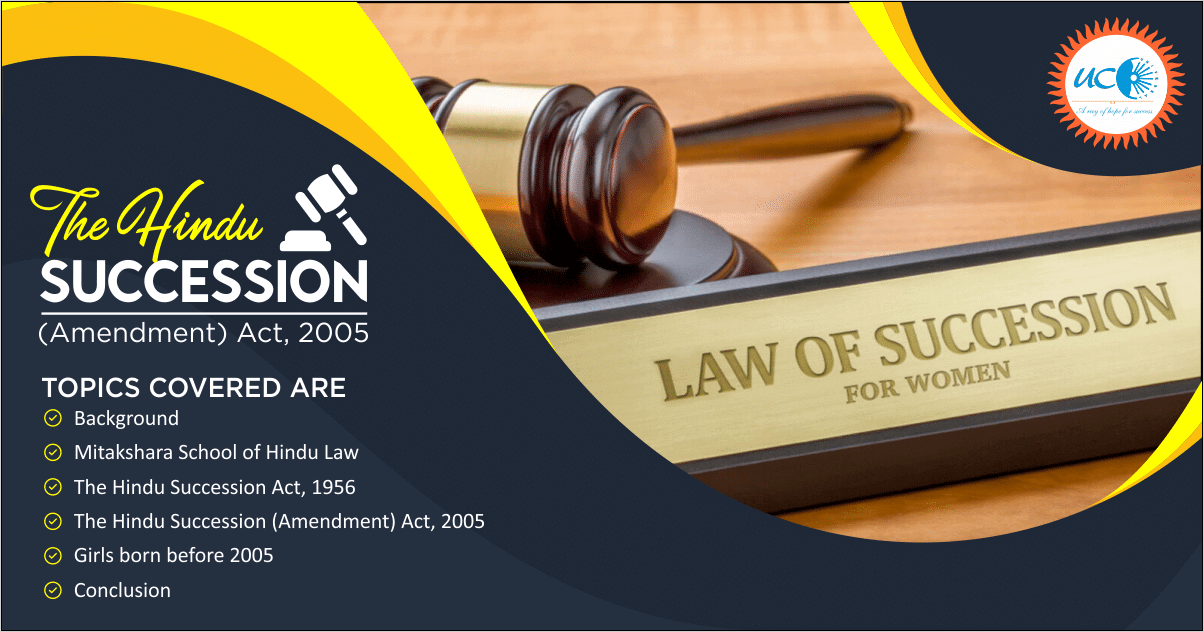The Hindu Succession (Amendment) Act, 2005
The Hindu Succession (Amendment) Act, 2005 was enacted to remove gender discriminatory provisions in the Hindu Succession Act, 1956. Under the amendment, the daughter of a coparcener shall by birth become a coparcener in her own right in the same manner as the son. This amendment also repeats section 23,24. This act was retrospective.
Background
- Mitakshara School of Hindu Law:
Before the enactment of the Hindu Successions Act in 1956, Hindus were covered by Shastri and customary laws.
Laws varied from region to region.
Under the Mitakshara School of Hindu Law, a woman in a joint Hindu Family had right only to Maintenance/Sustenance, But no right to inheritance of property.
If a portion takes place in a family then each male coparcener was entitled to a share. But a daughter did not get a Share.
The daughter would only get a share as one of the heirs on the death of a coparcener
- The Hindu Succession Act, 1956
The act was enacted to armed and codifies the law relating to intestate or unwilled succession among Hindus, Buddhists, Jains and Sikhs.
It lays down a uniform and comprehensive system of inheritance and applies to persons governed by both Mitakshara and Dayabhaga Schools.
Historically, the Hindu Successions act, 1956 did not confer any rights on a daughter to the ancestral property of her Father.
- The Hindu Succession (Amendment) Act, 2005
This act is of coparcener, which means that” By birth becomes a coparcener in her own right in the same manner as the son to the daughter or women”.
On 9th September 2005, the Hindu (Amendment Act), 2005 came into effect.
On from the commencement of the Hindu Succession (Amendment Act) 2005”, in a joint family governed by the Mitakshara Law, the daughter can also get an equal share as like as sons.
- Girls born before 2005
In 2014 Bombay High Court ruled that even daughter born before September 2005, When Sections 6 came into effect, would be entitled to be co-parceners in Hindu Undivided Family(HUF) property.
Thus avoiding the kind of iniquitous interpretation that could have hobbled this progressive legislation.
Conclusion
The Hindu Succession (Amendment) Act, 2005 is only applicable for Hindus and Sub-castes of Hindus.
The laws of divisions of property are based on religions.
Example: Muslim law – Based on Sharia.
Based on this law the sons will get double to what is given to daughter as her store and equality.
Laws like this will able women not to depend on others, and land makes the women to be secured in many ways.




